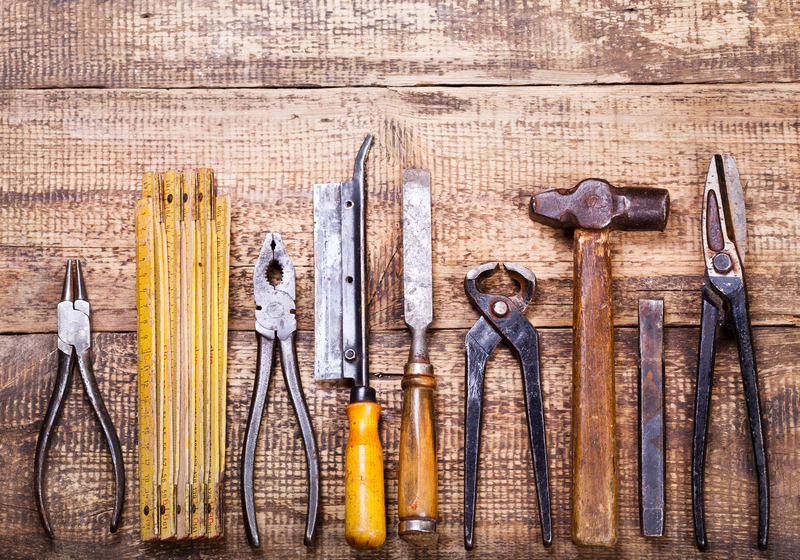Efficient Plant Pot Recycling and Disposal: A Comprehensive Guide
Efficient plant pot recycling and disposal is an essential aspect of sustainable gardening and landscaping practices. As environmental consciousness grows, gardeners and plant enthusiasts seek responsible ways to handle used plant pots. Whether you're a backyard grower or a professional landscaper, understanding how to recycle plant pots efficiently and dispose of them properly can significantly reduce landfill waste and contribute to a healthier planet.
Why is Efficient Plant Pot Recycling Important?
The average gardener goes through dozens of plant pots each year. These containers--usually made of plastic, terracotta, or biodegradable materials--often end up in garbage bins. The improper disposal of plant pots poses several problems:
- Environmental Pollution: Traditional plastic pots can take hundreds of years to decompose, contributing to landfill overflow and pollution.
- Resource Waste: Discarding pots instead of reusing or recycling wastes valuable resources, such as plastic and clay.
- Loss of Biodiversity: Incinerating or dumping plant pots can release harmful chemicals, affecting local ecosystems.
Efficient plant pot disposal and recycling is key to reducing your ecological footprint. Let's delve into the best practices, tips, and regional options for handling your used pots responsibly.

Types of Plant Pots and Their Environmental Impact
Phasing out single-use plastic pots begins with understanding the different materials used in plant pots:
1. Plastic Plant Pots
- Pros: Lightweight, affordable, durable, and easily stackable.
- Cons: Often made from non-recyclable plastics (such as black polypropylene); frequently end up in landfills.
2. Terracotta and Ceramic Pots
- Pros: Natural, breathable for plant roots, aesthetically pleasing, and reusable for many seasons.
- Cons: Heavy, brittle, and energy-intensive to produce and recycle.
3. Biodegradable or Compostable Pots
- Pros: Made from organic materials (e.g., coir, peat pulp, or wood fiber), they break down naturally.
- Cons: Often more expensive and less durable for reuse.
Choosing the right type of pot and managing its end-of-life properly is vital for sustainable garden practices.
Best Practices for Efficient Plant Pot Disposal
Before tossing used plant pots in the trash, follow these efficient, environmentally conscious steps:
1. Clean and Reuse
- Remove all soil, roots, and plant debris.
- Wash with a mild bleach solution (1 part bleach to 9 parts water) and rinse well to prevent plant diseases.
- Reusing is the most efficient form of recycling. Stack clean pots neatly for future use in your garden or share with neighbors and local community groups.
2. Repurpose Creatively
- Use small pots for seed starting or propagating cuttings.
- Large pots can become quirky garden decorations, organizers, storage bins, or bird feeders.
- Crafts: Transform colorful plastic pots into hanging planters, lanterns, or even children's projects.
3. Donate to Local Institutions
- Gardening clubs, schools, community gardens, and nurseries often welcome donations of clean, empty pots.
- Post on neighborhood groups or apps (like Freecycle or Facebook Marketplace) to offer your unwanted plant pots.
4. Recycle at Authorized Facilities
- Check with your municipal recycling program for accepted plastics (many don't take black plastic or mismatched resin codes).
- Look for dedicated plant pot recycling programs at local garden centers,/Home Depot, Lowes, or recycling drop-off points.
- Be sure pots are clean, stacked by size, and free of metal wires or plant tags.
Efficient Recycling Solutions for Plastic Plant Pots
Why Can't I Just Throw Plastic Pots in My Regular Recycling?
Most curbside recycling programs do not accept black plastic plant pots, as sorting machines cannot recognize dark colors. Additionally, contamination from soil, plant matter, or different resin types can disrupt the recycling process.
Specialized Plant Pot Take-Back Programs
Many garden centers offer free drop-off bins for used plant pots and trays. These get sent to specialized recyclers who can handle horticultural plastics. Notable programs include:
- Home Depot and Lowe's: Many stores operate plant pot recycling bins near entrances (check with your local store).
- Independent nurseries: Ask if they accept returns or host seasonal collection drives.
- Municipal hazardous waste or recycling events: Sometimes accept hard-to-recycle plastics, including garden containers.
Preparing Pots for Recycling
- Wash thoroughly to remove dirt and labels.
- Stack similar shapes and sizes to conserve space in collection bins.
- Remove any metal hooks, wires, or barcode stickers.
Sustainable Alternatives to Traditional Plant Pots
An important part of efficient plant pot recycling and disposal is considering alternatives that lessen environmental impact:
- Biodegradable pots: Make seed starting easier and can be planted directly into the ground.
- Pots made from recycled plastics: Close the materials loop by choosing containers made from post-consumer waste.
- Swap programs: Some communities exchange surplus pots, keeping them in use for longer periods.
Choosing sustainable options not only benefits the environment but can also save money and reduce your carbon footprint.
Terracotta, Ceramic, and Biodegradable Pot Disposal
Terracotta and Ceramic Pots
While they aren't recyclable in standard curbside systems, old or cracked terracotta and ceramic pots can still be put to good use:
- Break into pieces and use for drainage in other planters.
- Create garden mosaics or stepping stones.
- Donate unbroken pots to thrift stores, schools, or artists.
Biodegradable Pots
Check product labels--most biodegradable containers are suitable for composting or just setting directly in the ground. Be aware that:
- Some materials (like peat) take longer to break down.
- Remove synthetic labels, stickers, or staples before composting.
- Whole pots can be used for planting, preventing root disturbance.
Commercial and Community Plant Pot Recycling Initiatives
More organizations and communities recognize the value of proper plant pot recycling. Some notable initiatives include:
- Garden Center Collection Schemes: Seasonal take-back programs encourage customers to return pots when buying new plants.
- Industry-Wide Recycling Programs: The Horticultural Trade Association and similar groups support closed-loop recycling efforts, turning old pots into new ones.
- Community Volunteering: Local green groups run clean-up and recycling days dedicated to garden waste, including containers.
Ask your preferred nursery or shop if they participate in any plant pot disposal programs--your old pots could help start a new cycle!
Tips for Minimizing Plant Pot Waste
- Buy in Bulk or Bare Root: Purchasing bare-root plants or those in larger, reusable containers minimizes single-use packaging.
- Return pots to growers when possible.
- Avoid black plastic: Choose colored or clear pots, which are more widely accepted for recycling.
- Support sustainable brands: Many nurseries now offer "pot return" incentives or discounts for bringing pots back.
Long-Term Garden Planning
Design your garden with perennial beds and in-ground plants where possible. This reduces the need for disposable pots and leads to a more sustainable, efficient gardening practice overall.

FAQs on Efficient Plant Pot Recycling and Disposal
- Can I put plant pots in my general recycling bin?
Most municipal programs do not accept plant pots due to soil contamination and resin code issues. Always check locally. - What should I do with cracked or broken pots?
Repurpose as drainage or in craft projects, or recycle if the facility accepts broken containers. - How do I know if a plant pot is recyclable?
Check for recycling symbols and resin codes on the underside of the pot. Consult your local authority for accepted materials. - What are the most eco-friendly plant pot options?
Biodegradable pots, pots made from recycled plastic, and terracotta are generally considered sustainable.
Conclusion: Grow Greener with Responsible Plant Pot Recycling
By embracing efficient plant pot recycling and disposal practices, gardeners, landscapers, and plant lovers can make a real difference. Every step--from reusing and repurposing to using dedicated recycling programs--reduces waste, protects the environment, and supports a circular economy. The next time you buy a plant, consider how you'll handle the pot at the end of its journey. A greener garden begins with a smarter, more sustainable choice!
Start today: Clean out your garden shed, locate the nearest recycling scheme, and inspire your community to support responsible plant pot disposal--for a healthier planet and more beautiful gardens for generations to come.